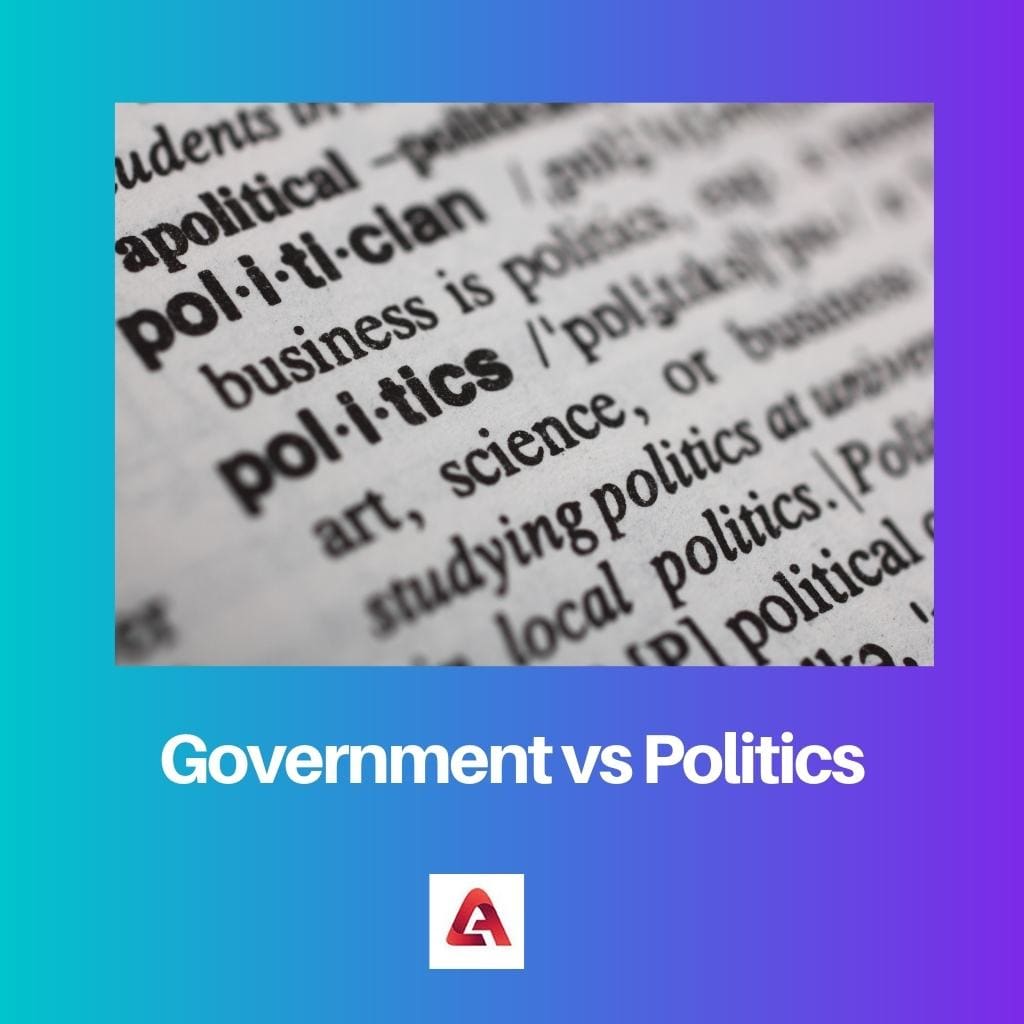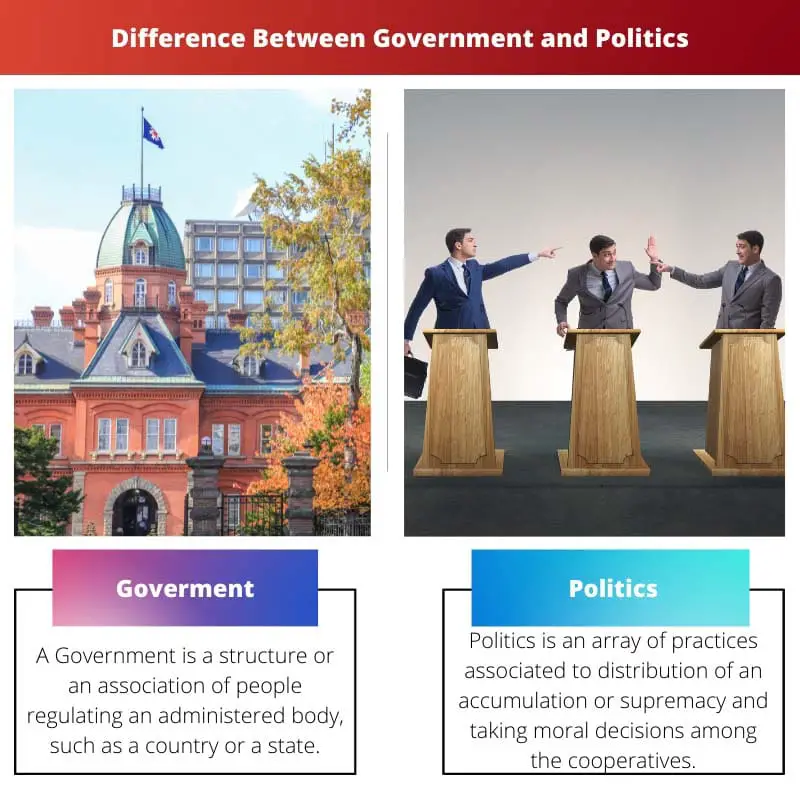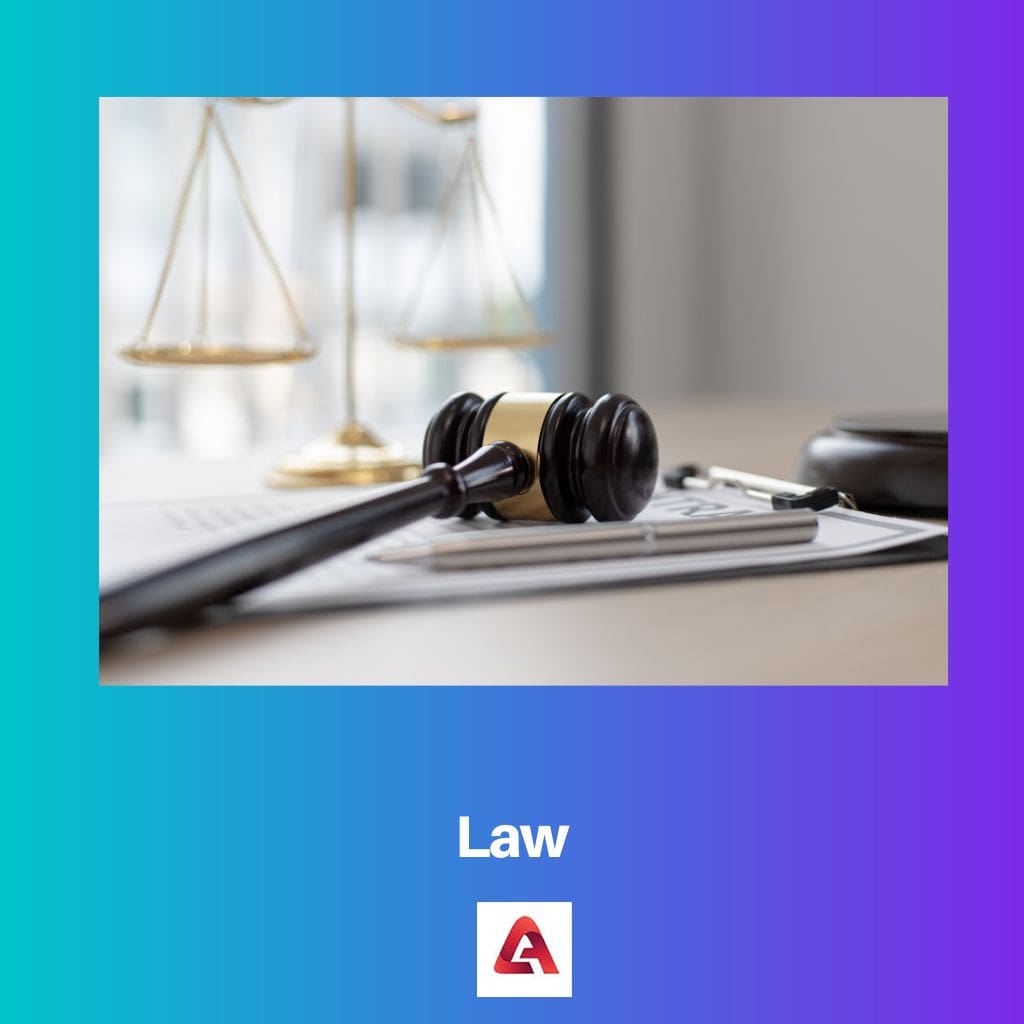People more confuse Governmental decisions and political actions. Both can result in welfare or hardship for their surroundings depending on those who hold the powers.
So they are co-related bodies of society.
Key Takeaways
- Government is the system that manages and controls a state, whereas politics is the process of making decisions and exercising power within a government.
- Government involves the legislative, executive, and judicial branches, while politics involves the different parties, ideologies, and interest groups that compete for power.
- The government provides services to citizens, maintains law and order, and enforces regulations, while politics determines policies, laws, and regulations.
Government vs Politics
The government refers to the institutions responsible for making and enforcing decisions for a particular society or country. Politics refers to the decision-making process within a society, including the formation and implementation of policies, allocation of resources, and exercising power.

Government is an authority that leads, administrates, and manages the people of the selected region. It takes decisions, applies and changes them for the masses. At the same time, a political party can be created to share communal problems, religious sentiments, office rivalries, educational rights, or anything the group has the same thoughts about.
Educational research and studies of Government and politics are known as ‘Political Science.’
Comparison Table
| Parameter of Comparison | Government | Politics |
|---|---|---|
| Definition | A Government is a structure or an association of people regulating an administered body, such as a country or a state. | Politics is an array of practices associated with the distribution of an accumulation of supremacy and taking moral decisions among cooperatives, discrete authorities, or other such bodies. |
| Category | It is called a group of people. | It is called a process or an ideology. |
| Formed for | It is formed for mass. | It is formed for mass or individual. |
| Goal | An administration to lead people. | A community to put your views forth. |
| Leadership | Leadership is for a country or society. | Leadership is for an ideogram or particular motive. |
| Representing Figure | It can be carried by Authorized, designated, and chosen figures. | An Authorized or an ordinary person could carry it. |
| Embodies | Its commonly embodies Executive, Legislative, and Judicial. | It commonly embodies Liberal, Conservative, Reactionaries, Autocracy, and Radical. |
| Functionality | In a country, state, town, district, or region. | It can be anywhere from office, academics, and religion to government. |
| Jurisdiction | Capable of creating, executing, and modifying jurisprudence. | Involvement doesn’t always have any authorized jurisdiction abilities. |
| Undertaking | An undertaking is always orderly and legitimate. | It can be or cannot be orderly or legitimate. |
| Types | Democracy, Federalism, Autocracy, Republic, Aristocracy. | Democracy, Dictatorship, Communism, Republic, Monarchy. |
What is Government?
A Government is a structure or association of people regulating an administered body that is a country or a state.
It can also be known as an authority of an assembly, multinational corporation, political entity or regional group, including a province, town, or territory.
The governmental body is created to lead and administrate the mass. The figure is authorized, chosen, and designated to represent and head the country.
It has three embodies following executive, legislative and judicial.
Its functionality works orderly and legitimately for overall and selective parts of the state or regions. Under this, it can create, execute, and modify the laws.
There are several governments in the world. Democracy, Federalism, Autocracy, Republic, and Aristocracy are a few of them. For example, India is a democratic country.

What is Politics?
Politics is an array of practices associated with distributing an accumulation of supremacy and taking moral decisions among cooperatives, discrete authorities, or other such bodies.
It is an ideology formed to put communal issues forth. It can be made for the masses or with an individual motive.
The known embodies as follows: liberal, conservative, reactionaries, autocracy, radical. The undertaking doesn’t always have an authorized jurisdiction.
The system can take place anywhere in the world in legal or illegal forms. It does not need to be an authority to take political actions as it involves an ordinary person.
Mainly parties are divided into Democracy, Dictatorship, Communism, Republic, and Monarchy. There are political parties in the world working for welfare; they’re organized and legitimate.
Politics does the crucial work of putting the issues in front of the government. For example, the Social Democratic and Labour Party in the UK is a democratic political party.

Main Differences Between Government and Politics
- For the betterment of society, the Government is a group of people working together. Whereas, Politics is the process that is held for taking decisions.
- The governmental body leads a country or a society. Whereas, Politics leads to an ideology or a motive.
- Without the regime, society will become weak as it needs a leader to progress. Also, it needs a political party to put forth its issues.
- The representing figure of Government is an authority or an elected personality. On the other hand, a Political figure can also be approved, as well as an ordinary person.
- Government has executive, legislative, and judicial embodies, whereas, Politics has a liberal, a conservative, the reactionaries, an autocracy, and the radical embodies.
- Governmental functionalities work in a country, state, town, district, or region. On the contrary, political functionalities work anywhere from office, academics, and religion to government bodies.
- Government has the power to create, execute, and modify jurisprudence. Conversely, Politics doesn’t always have authorized jurisdiction.
- The undertaking of governmental actions is always organized and legitimate. But, when it comes to politics, it can or cannot be.






